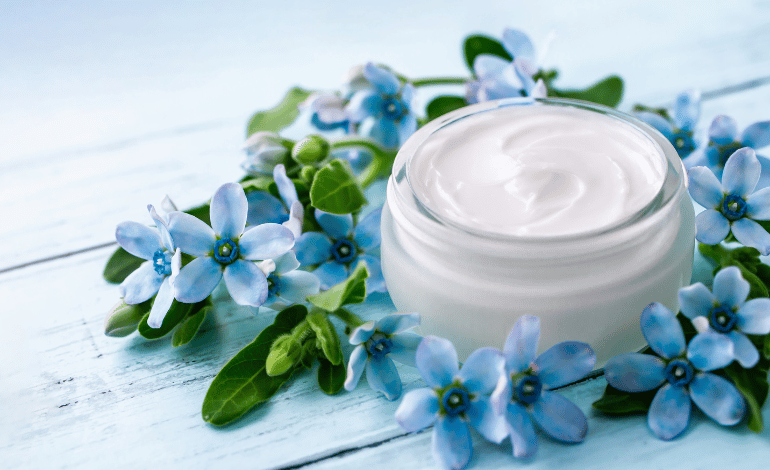Dry and Sensitive Skin: Understanding Causes and Care

Introduction
Dry and Sensitive Skin: Understanding Causes and Care: Taking care of your skin is essential for maintaining its health and appearance. Among the various skin types, dry and sensitive skin requires special attention and care. In this article, we will delve into the characteristics of dry and sensitive skin, explore the common causes, and provide practical tips to manage and nourish your skin.
What is Dry Skin?
Dry skin is a skin type characterized by a lack of moisture and natural oils. It often feels tight, rough, and may appear dull or flaky. Dry skin is more prone to itching and irritation, making it vital to adopt a skincare routine that focuses on hydration and protection.
Common Causes
Several factors contribute to dry skin. Environmental elements such as cold weather, low humidity, and excessive sun exposure can strip the skin of its natural oils, leading to dryness. Additionally, frequent bathing or showering with hot water and using harsh soaps can disrupt the skin’s moisture balance.
Signs and Symptoms
Dry skin presents various signs and symptoms that are important to recognize. These include tightness, itchiness, redness, roughness, and flaking. In severe cases, dry skin can lead to cracks and fissures, increasing the risk of infections.
Understanding Sensitivity
Sensitive skin refers to a heightened response to external stimuli. Individuals with sensitive skin may experience redness, inflammation, and discomfort when exposed to certain ingredients or environmental factors. Dry skin is often associated with sensitivity due to its weakened protective barrier.
Factors that Trigger Sensitivity
Several factors can trigger sensitivity in individuals with dry skin. Harsh skincare products, fragrances, allergens, and extreme temperatures are common culprits. Identifying these triggers and avoiding them can help minimize sensitivity and improve overall skin health.
Managing Hand Eczema: Tips And Treatments For Healthy Skin
21 Successful Tips To Manage Hand Eczema
Managing Dry and Sensitive Skin

Proper management of dry and sensitive skin involves adopting a skincare routine that focuses on hydration, protection, and gentle care. Here are some key steps to consider:
1. Daily Skincare Routine
Establishing a consistent daily skincare routine is crucial for maintaining skin health. Start by cleansing your face with a gentle, hydrating cleanser twice a day. Avoid using hot water and harsh cleansers that can further strip the skin of its moisture.
2. Hydrating Ingredients
Look for skincare products that contain hydrating ingredients such as hyaluronic acid, glycerin, and ceramides. These ingredients help replenish the skin’s moisture barrier, keeping it supple and moisturized.
3. Gentle Cleansing Tips
When cleansing your face, use lukewarm water and gentle circular motions. Pat your skin dry with a soft towel instead of rubbing it, as excessive friction can aggravate dryness and sensitivity.
4. Moisturizing Techniques
After cleansing, apply a moisturizer suitable for dry and sensitive skin. Choose products that are fragrance-free, hypoallergenic, and non-comedogenic. Apply the moisturizer while your skin is still slightly damp to lock in moisture.
5. Protective Measures
To protect your skin from external factors, such as harsh weather or pollutants, consider using a broad-spectrum sunscreen with an SPF of 30 or higher. Additionally, cover exposed areas with clothing or accessories like hats and sunglasses.
6. Lifestyle and Diet Tips
Maintaining a healthy lifestyle and diet can contribute to improved skin health. Stay hydrated by drinking an adequate amount of water daily. Include foods rich in omega-3 fatty acids, antioxidants, and vitamins in your diet, such as fatty fish, fruits, vegetables, and nuts.
7. Dealing with Flare-ups
Even with a diligent skincare routine, occasional flare-ups may occur. During these times, avoid using any new products and stick to your basic skincare routine. Applying a cold compress or using over-the-counter hydrocortisone cream can help alleviate itching and redness.
Conclusion
Dry and sensitive skin requires special attention and care to maintain its health and radiance. By understanding the causes, recognizing the signs and symptoms, and implementing an effective skincare routine, you can effectively manage dry and sensitive skin. Remember to choose gentle and hydrating products, protect your skin from external factors, and make lifestyle choices that support skin health.
Best Moisturizer For Dry And Sensitive Skin In India
FAQs
1. Can dry skin lead to sensitivity?
Yes, dry skin often leads to sensitivity due to its weakened protective barrier. When the skin lacks moisture and natural oils, it becomes more prone to irritation and reactions.
2. Are there specific ingredients to avoid for dry and sensitive skin?
Individuals with dry and sensitive skin should avoid products that contain harsh chemicals, fragrances, and known allergens. Opt for gentle and hypoallergenic formulations.
3. How can I soothe itchy and flaky skin?
To soothe itchy and flaky skin, use moisturizers that contain ingredients like aloe vera, oatmeal, or chamomile. These ingredients have calming properties that can help alleviate discomfort.
4. Can diet impact dry and sensitive skin?
Yes, maintaining a healthy diet that includes foods rich in omega-3 fatty acids, antioxidants, and vitamins can support overall skin health. These nutrients can help nourish and hydrate the skin from within.
5. Is it necessary to consult a dermatologist for dry and sensitive skin?
If you have persistent or severe symptoms of dry and sensitive skin, it is advisable to consult a dermatologist. They can provide a personalized treatment plan and recommend suitable skincare products.







